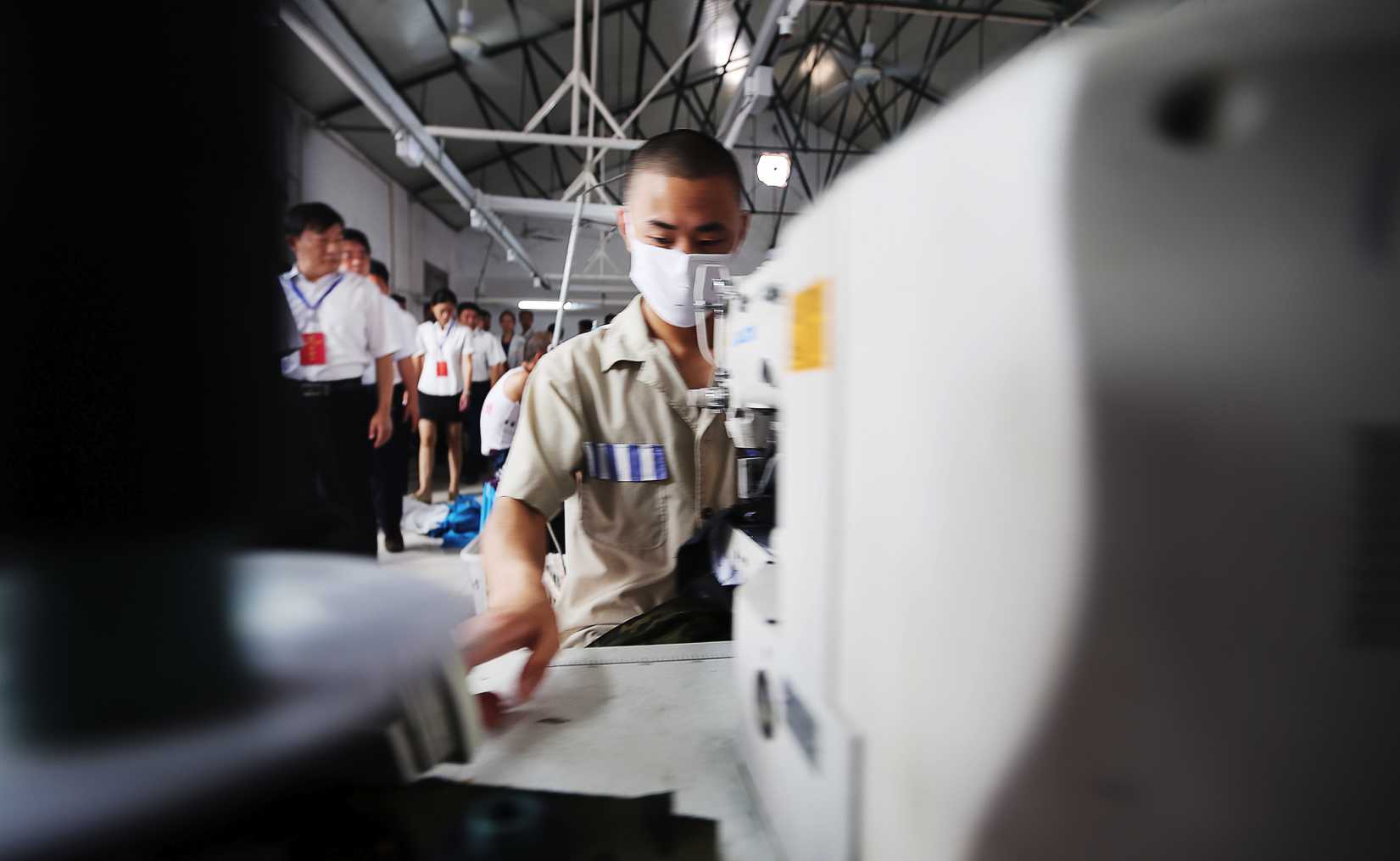
What purports to be a cry for help from Chinese prison inmates has been found inside a pair of trousers bought from a popular U.K. retailer.
Karen Wisinska, a Northern Ireland mother-of-two, says she bought the trousers from the Primark fashion chain in 2011 but never wore them. When clearing out her wardrobe recently, she found the note, written in Chinese, in the back pocket of the pants and had it translated.
“SOS! SOS! SOS!,” it began. “We are prisoners in the Xiang Nan Prison of the Hubei Province in China. Our job inside the prison is to produce fashion clothes for export. We work 15 hours per day and the food we eat wouldn’t even be given to dogs or pigs. We work as hard as oxen in the field.”
Primark has cast doubts on the authenticity of the note. A Primark spokesperson told the Belfast Telegraph that several inspections of the manufacturer had been carried out since the trousers were made. “To be clear, no prison or other forced labor of any kind was found during these inspections,” he said.
However, the discovery of the note — authentic or not — has brought into focus once again the issue of forced labor, which has long been used as a punishment in China, mainly at reform-through-labor camps known as lao gai. These detention centers hold people who have never faced trial, such as political activists, or followers of spiritual movements such as Falun Gong.
The U.S. keeps a list of goods produced by forced labor in China, including Christmas decorations, shoes and toys, and discoveries like Wisinska’s have been made before.
In June 2013, a mother-of-two in Oregon told the New York Times about a note she found inside a package of Halloween decorations bought at Kmart. The same month, a New Zealander who spent time at a prison in Dongguan told the Australian Financial Review that he and his fellow inmates had been making disposable headphones for Qantas, British Airways and Emirates. In December, an American college professor was released from a detention center in Guangzhou, where he was forced to make Christmas lights and plastic component parts.
In November, China said it had closed down all the country’s lao gai, but even if this were true, forced labor is carried out in conventional prisons and much of what is produced ends up in the West.
“Whether or not the products are produced for the West, it’s certain that a lot of them would end up there because of the way supply chains work,” Maya Wang, a China researcher with Human Rights Watch, told TIME.
She points out that China hasn’t signed the International Labor Organization’s convention on forced labor, so the practice is still legal in the country. “Without a strong legal framework, it’s really easy to evade responsibility,” she says.
Meanwhile, in response to Wisinska’s discovery, Amnesty International’s Northern Ireland program director Patrick Corrigan said “It’s very difficult to know whether it’s genuine, but the fear has to be that this is just the tip of the iceberg.”
More Must-Reads from TIME
- Cybersecurity Experts Are Sounding the Alarm on DOGE
- Meet the 2025 Women of the Year
- The Harsh Truth About Disability Inclusion
- Why Do More Young Adults Have Cancer?
- Colman Domingo Leads With Radical Love
- How to Get Better at Doing Things Alone
- Michelle Zauner Stares Down the Darkness
Contact us at letters@time.com